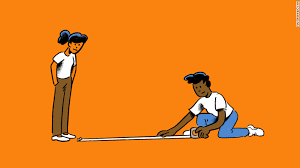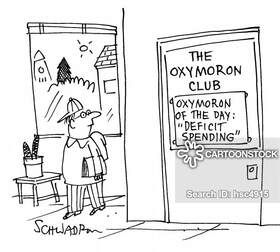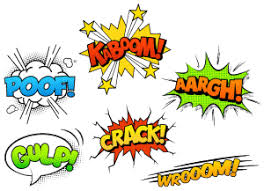 A Spoonful of Grammar is thrilled to be back! Since we've been APART for nearly two months, it feels appropriate to review the many meanings of APART in this short, sweet return spoonful. Definition #1: away from or separated by a distance Erin feared living too far apart from her family. Definition #2: at a distance or off to the side Aaron stood 6-feet apart from the kids who were clustered together. Definition #3: shattered An airplane was purposely blown apart in the movie My Spy. Definition #4: (with from) except Everyone complied with the rules, apart from Mr. Mills. Definition #5: (with from) indistinguishable The Thompson twins were extremely hard to tell apart. You may be wondering, "Are APART and A PART interchangeable?" The short answer is NO! A PART is comprised of two words and most commonly refers to part of a whole. Here's a good rule of thumb: if you can use the word PART, you can usually substitute A PART. My parting wish is that you and your families remain happy and safe during this challenging time. Sincerely, Laura Fineberg Cooper
4 Comments
 OXYMORONS consist of two contrasting words that when put together, create meaning beyond the literal definitions of each word. In fact, the word itself is an oxymoron, with oxy meaning sharp and moron meaning foolish! Let's examine five of these opposing pairs, and I'll happily provide my interpretation. CLEARLY CONFUSED: clear = understandable; confused = perplexed This implies obviously confused. DEAFENING SILENCE: deafening = booming; silence = quiet, calm ---This implies uncomfortable silence and recalls the saying, "Silence speaks louder than words." SMALL CROWD: small = little, few; crowd = a whole bunch of people This implies a smaller than expected crowd or a small gathering of people. OPEN SECRET: open = not shut, direct; secret = confidential This implies a secret everyone seems to know, which sadly, is not a secret anymore. RANDOM ORDER: random = arbitrary; order = systematic This implies a random sort, like a lottery. While being picked can lead to riches, THE HUNGER GAMES books and movies illustrate the dystopian dark side of being picked. Think of the myriad of plot possibilities for your creative story! Try to drum up more oxymorons your own. Or if you like, you can find a larger list of oxymorons on Your Dictionary.com. I hope you enjoyed this intriguing Spoonful of Grammar. I wish you all a safe and enjoyable week ahead. Sincerely, Laura Fineberg Cooper  This rhetorical device deserves an award for using every vowel except one. Even though it's so challenging to spell, its meaning is fairly easy to remember: turning sounds into words. Now it's time for a few examples!
I'm sure you get the idea by now. Can you think of more onomatopoeia words yourself? This is a particularly fun exercise for young children. And a helpful little exercise for adult writers too! I wish you all a great, healthy week ahead. I'll be back next Sunday with another Spoonful of Grammar. Sincerely, Laura Fineberg Cooper  A well-chosen VERB can convey a wealth of description, making them the perfect addition to your descriptive writing toolbox. Are you battling with word count, as with picture books or college essays? Or is your writing style without extra fluff? If so, join me in celebrating the descriptive power of VERBS. Consider this simple sentence: Maria walked to the store. What do we know about that walk? Maria arrived. Period. Now let's substitute four jazzier VERBS. How has our belief about Maria's trip to the store changed? Maria skipped to the store. Maria is happy, youthful, and carefree. This trip to the store is a treat for her. Maria trudged to the store. Going to the store is a chore for Maria. Shoulders slumped, it's a struggle for Maria to place one foot in front of the other. Maria marched to the store. Maria is a woman on a mission, walking with great purpose and precision. She did not stop and smell the roses on the way. Maria limped to the store. Oh no, poor Maria. This trip can't be easy at all. She must really need something at that store: crutches, medicine, or cat food perhaps. A thesaurus has forever been my faithful writing partner. Just make sure you understand the nuances between each given synonym. If in doubt, check your dictionary. Fortunately, we now have online sources to augment the physical standards: Dictionary.com/Thesaurus.com is my current go-to source. So go ahead and find some powerful VERBS to spice up your writing! I hope you enjoyed this spoonful. Happy writing! I'll return with a new post next Sunday. Be well, Laura Fineberg Cooper A Spoonful of Grammar  OLOGY: "A subject of study or branch of knowledge." OLOGIST: "One who studies." For fun, I'll share the definitions of 10 OLOGY words - 5 you're familiar with and 5 that should surprise and delight you. After you read my list, I hope you'll have fun decoding (or inventing) more OLOGIES on your own! OLOGIES you've probably heard of ... 1) BIOLOGY/BIOLOGIST: The scientific study of living organisms, broken into discrete specialties and often focused on particular areas. Anatomy, Cytology (cells), and Botany (plants) are among the branches of Biology. 2) PSYCHOLOGY/PSYCHOLOGIST: The scientific study of the way people think and act. In this case, the OLOGIST form refers to an expert in the field who counsels others. The root comes from psyche, which means the soul in Ancient Greek. 3) ZOOLOGY/ZOOLOGIST: The branch of biology that concerns study of the animal kingdom. The word zoo actually derives from the Ancient Greek name for animal. 4) ORTHNITHOLOGY/ORTHNITHOLOGIST: The scientific study of birds 5) ASTROLOGY/ASTROLOGIST: The study of how the movement of celestial bodies can be used to predict events and cast horoscopes. Does it work? Astrologists certainly believe so. OLOGIES that may surprise you ... 6) OOLOGY/OOLOGIST: The branch of ORTHNITHOLOGY that focuses on eggs, nests, and breeding habits of birds. It used to be a hobby for gentleman who fancied the collection of colorful wild eggs. Luckily, that practice is now largely prohibited. 7) AREOLOGY/AREOLOGIST: Study of the planet Mars. This derives from the Ancient Greek god of war, Ares. Interestingly, the planet itself is named after the Ancient Roman counterpart, Mars. 8) ICHTHYOLOGY/ICHTHYOLOGIST: The scientific study of fish, deriving from ikhthus, which means fish in Ancient Greek. 9) HOROLOGY/HOROLOGIST: the craft of designing and/or manufacturing clocks. The root of these words means time. Can you think of another word with the root HORO? I'll give you a big clue: I'm a Taurus. What's your sign? 10) TAUTOLOGY: useless repetition or stating the same thing twice, thinking that will make it true and likely driving others crazy. In this case, I doubt there's such thing as a TAUTOLOGIST. In fact, there's no study of this either. Or at least I hope not! (FYI: when you see a word with multiple consonants strung together and Y instead if I, you can guess it hails from Greek. Most Scientific classifications and mathematical words do in fact hail from the Ancient Greeks.) If you find or invent more interesting OLOGIES, please share! Take care, everyone. Sincerely, Laura Fineberg Cooper |
Welcome to
|
 RSS Feed
RSS Feed
